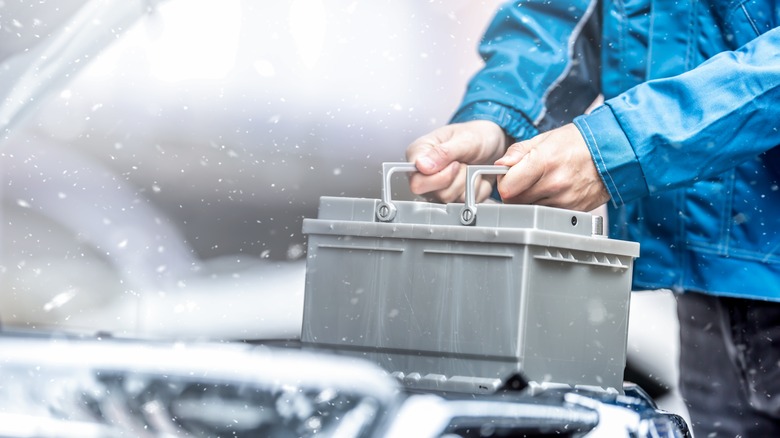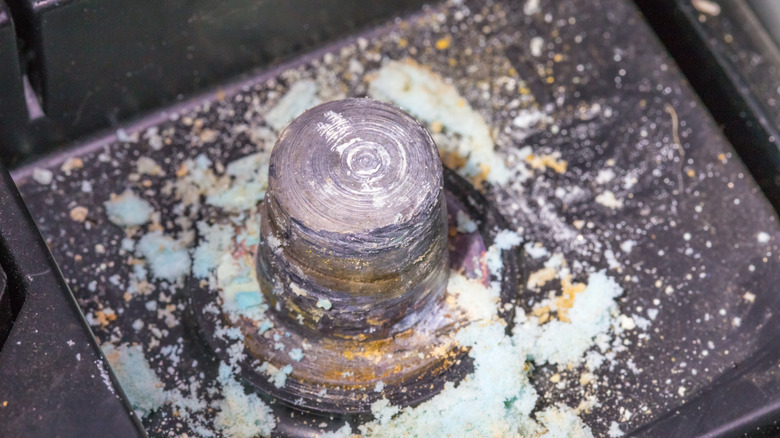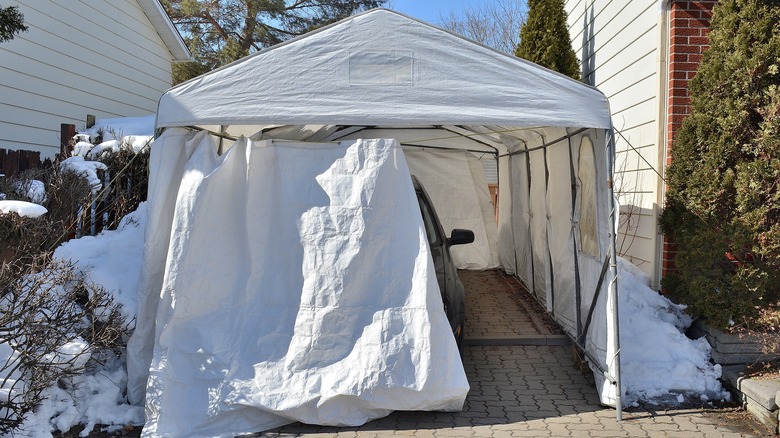The Reason Car Batteries Are More Likely To Die In The Winter (And How To Prevent It)
Few times of the year require your car battery's healthy and consistent operation more than the winter months. It's your battery that provides all of your cold-season safety features, from seat warmers to blizzard-piercing headlight high beams. However, it is also during these frosty months that your car's battery is at its most vulnerable.
Due to low temperatures and a handful of other environmental factors, car batteries are much more susceptible to sudden failures when it's colder out, gradually losing their efficacy and, in the worst-case scenario, dying altogether, even in the middle of a drive. The last thing you need while you're stuck in a blizzard on the highway is to suddenly have all of your heating and lights die on you, so you need to take preventative measures to keep your battery safe. After all, if your battery isn't kept safe, there's a good chance you won't be safe either.
What causes battery failure in the winter?
Like with any battery, the power generated from the battery in your car is a result of a chemical reaction between liquid electrolytes and lead plates. This chemical reaction creates electricity, which in turn is sent to the various components of your car. However, the reaction can be influenced by external environmental factors. Your battery actually works a little better when it's slightly warm out because the increased temperature reduces the electrical voltage necessary to activate the car's components.
On the flip side, extreme cold reduces the overall efficacy of your battery, as it requires a larger, more consistent charge to power everything. This is actually the reason your engine has difficulty turning over when it's cold out — the battery can't get enough juice flowing to trip the starter.
If the car, and by extension the battery, is left out in the cold for long stretches, the internal components will deteriorate at an accelerated rate. Based on the battery's existing age and wear, this could eventually lead to a complete failure.
What you can do about it
If you want to keep your battery from failing in the cold season, there are a few proactive measures you can take to preserve it.
Firstly, always endeavor to park your car in a covered location like a garage. This will help to keep the car and its components insulated, preserving its ambient heat. If that's not an option, you can also cover it up with an insulated vehicle cover for a similar effect. You should also try not to park on soft surfaces like dirt, as that will siphon away the car's heat.
If your battery is already getting on in years, you should periodically pop the car's hood and give it a quick look-over for corrosion. If there's even a little corrosion on the battery, extreme cold will exacerbate it further and cause a faster breakdown, so clean the corrosion immediately.
Finally, if possible, try not to use the battery-powered elements of your car where you can. Leave the high beams off and unplug any device chargers. Reducing the overall load on the battery can help to compensate for its reduced charge while it's cold out.
Remember, if you're ever uncertain about the health of your battery, visit your local licensed mechanic and have them give it a once-over.


